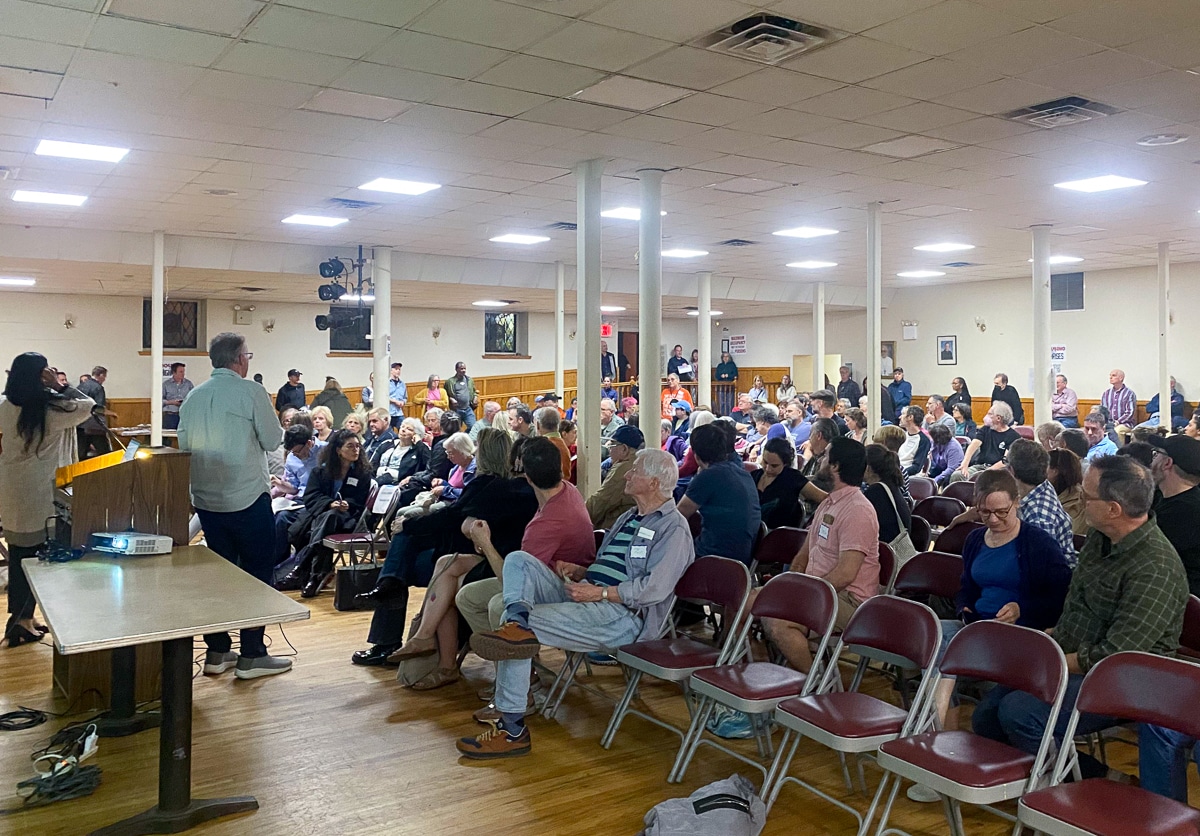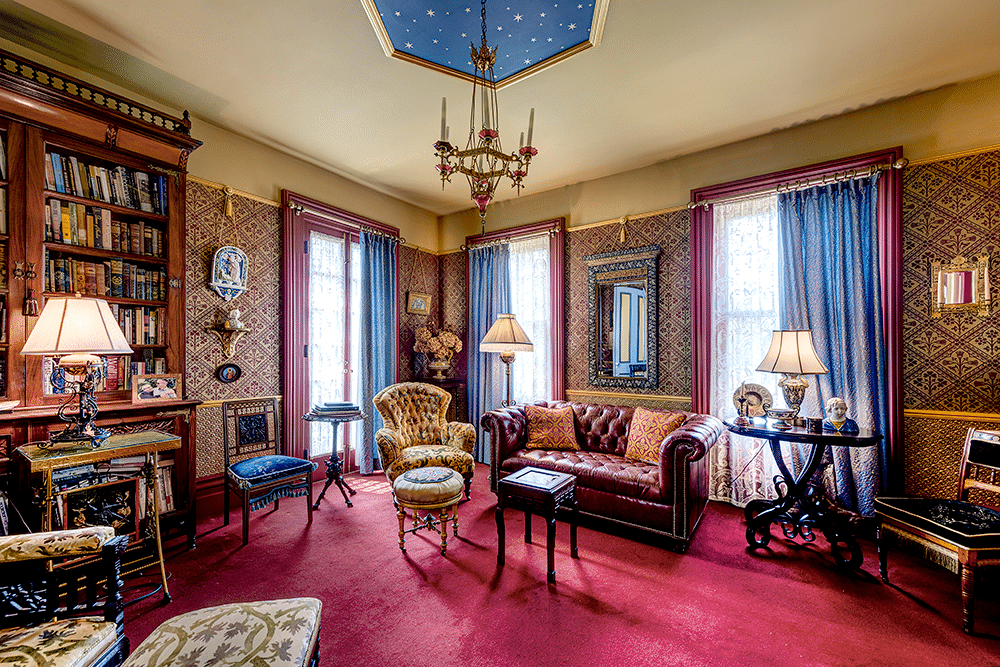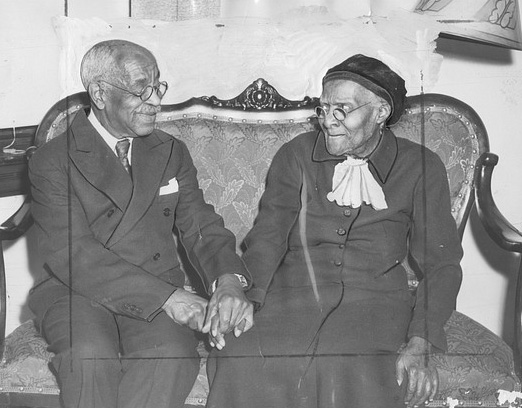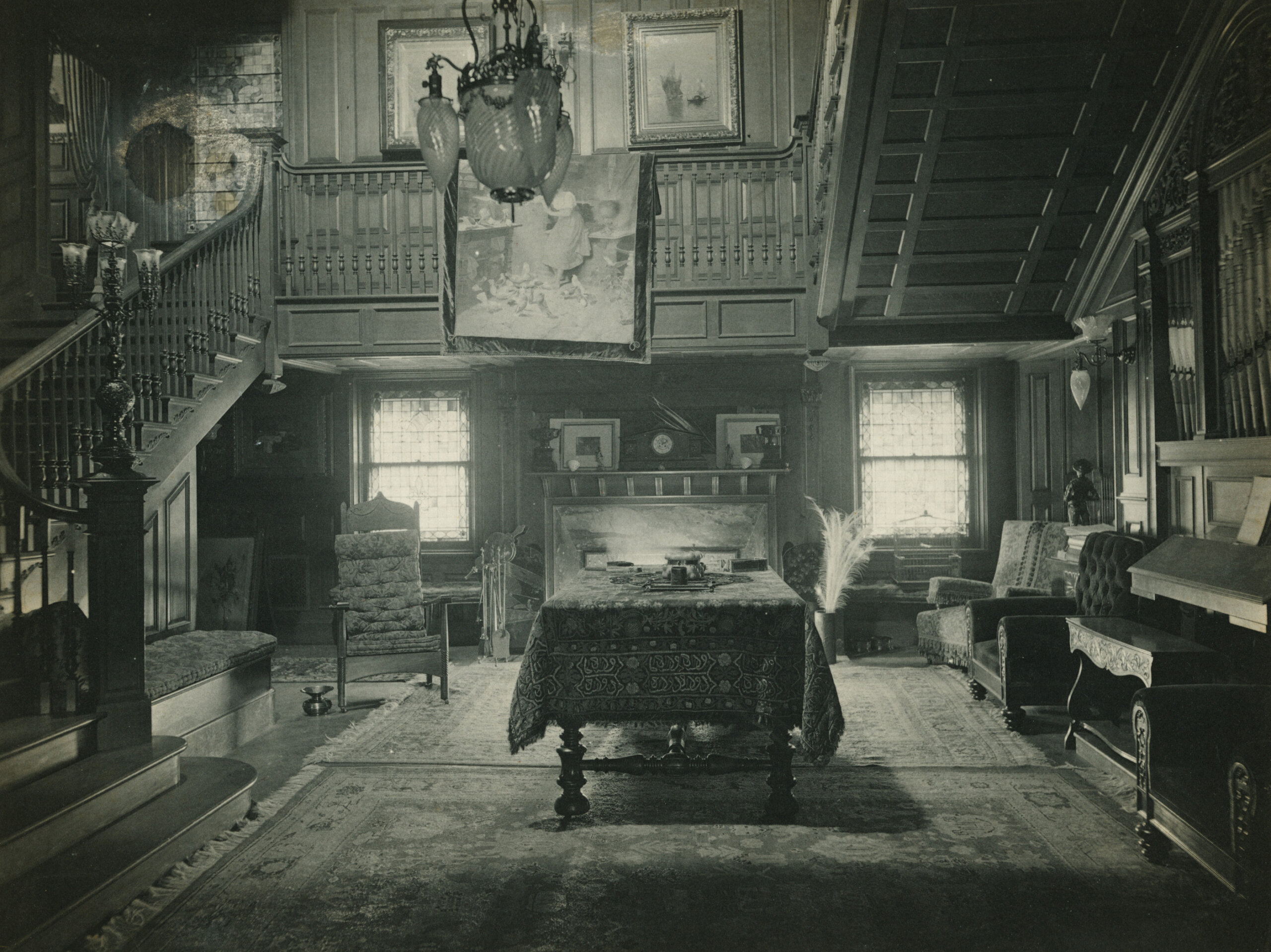Walkabout: A “Musica” Life, Part 3
Read Part 1, Part 2 and Part 4 of this story. In 1920, a man named F. Donald Costa and his partner Joseph Brandino established a pharmaceutical company called the Adelphi Pharmaceutical Manufacturing Company. Their main product was a miraculous solution called “Dandrafuge,” which could stop dandruff in its tracks and grow hair on a…

Read Part 1, Part 2 and Part 4 of this story.
In 1920, a man named F. Donald Costa and his partner Joseph Brandino established a pharmaceutical company called the Adelphi Pharmaceutical Manufacturing Company. Their main product was a miraculous solution called “Dandrafuge,” which could stop dandruff in its tracks and grow hair on a rock. The company also made other tonics and cosmetic products.
Costa and Brandino were establishing their company at the dawn of the Roaring Twenties, that mythical time of ragtime, flappers and Prohibition. After January 1, 1920, thanks to the 18th Amendment, all forms of alcohol were now illegal. Because many tonics and medicines required some form of alcohol in their recipes or production, manufacturers had to obtain a permit from the government that allowed them to legally purchase alcohol. Adelphi had a permit that allowed them to buy 5,000 gallons of alcohol a month. They bought and used every drop.
Bottles of Dandrafuge were rolling off the assembly lines, and were selling like hotcakes, but not to those with follicle issues. Dandrafuge was incredibly popular to bootleggers. They bought up entire shipments, distilled the alcohol out of it, and made bootleg liquor and beer. This was not an unexpected by product of manufacturing, Costa and Brandino knew exactly what they were doing.
They began making money hand over fist, selling 98 percent of their product to bootleggers. Costa kept two sets of books, one showing legit sales, the other showing how much he was really making. And he needed it, because F. Donald Costa had to refill the family coffers; the Musica family coffers. F. Donald Costa was in reality Phillip Musica, the notorious Brooklyn-based con man who had fleeced thousands of dollars from banks in a human hair extension scam at the turn of the 20th century. This was after cooking the books on his family’s Italian food importing business even earlier.
If at first you don’t succeed, try something else. Phillip Musica had gone from food importer to human hair merchant to jailbird to government snitch. He changed his name to William Johnson and chased German spies during World War I. He then investigated criminals for the DA’s office after the war, switched sides and was an investigator for defense attorneys. All of these adventures were chronicled in Part One and Part Two of our story.
But investigators don’t make that much money. Musica/Johnson/Costa wanted to be as rich as he had been when scamming banks. He wanted serious money, and Prohibition was the answer to his prayers. He and Brandino sold Dandrafuge to bootleggers for three years, during which time F. Donald Costa made his money back, and more. Prohibition was very lucrative for both partners, but by 1923, Costa got tired of sharing. He dropped a dime on Brandino, and their business was closed down by the Feds.
That was all part of the plan. He began a new business in Yonkers, called Girard & Co. They made a miraculous anti-dandruff tonic called…Dandrafuge! Costa was back, this time without a partner and with a new name. He was now Frank Donald Coster; a nice WASPY name for a respectable businessman. He told people that he was from Washington, DC, and was a medical doctor, with an MD and PhD from Heidelberg University.
In addition to Dandrafuge, Girard & Co. also made other legitimate products. But as before, most of their products were sold to bootleggers. One of his biggest customers was the notorious Dutch Schultz. Girard was a much bigger operation than Adelphi had been, and Frank Coster realized he needed more help to pull this off and stay off the government’s radar. So he called on the one group of people he knew he could trust – his family.
Coster then established a very complicated and flawless con that made the whole operation work. He told everyone that he was running Girard for the widow and sister of the founder of the company, his good friend, now deceased, Horace Girard. His mother and his sister Grace were cast in those roles. His brother Arthur, under the name George Vernard, opened an office in Manhattan called W. W. Smith & Co. He hired a secretary, and the company was the sales agent for Girard. Its purpose was to generate volumes of sales orders from fake companies all across the country, creating a paper trail to cover up where the product was really going.
Another brother, Robert, became Robert Dietrich, the plant’s shipping manager. He shipped out what small quantities of product that went to legit customers, but his main job was to write shipping orders and packing lists for all of the fake companies that Girard was not selling to. Those goods were going straight to the stills of bootleggers. A third brother, George, calling himself George Dietrich, became the company treasurer. He moved money around from different bank accounts, “paying” for orders from various “customers.” The entire operation was slick, professional, and looked to be on the up and up.
Frank Coster was not going to make any mistakes with this operation. It was making too much money. Unlike his scam with U.S. Hair, Girard actually made product, there was no fake inventory in a warehouse somewhere. If any government agency came looking, he had a factory, a shipping department with real product going out, and his books showed that he was a successful manufacturer with the usual accounts receivable and accounts payable.
In order to add further legitimacy, Frank had the firm of Price Waterhouse audit his company. Back then, an audit only looked at the books, and Girard’s books were a thing of beauty, with customer orders, shipping orders, packing lists and cancelled checks paying for product. Girard’s had the purchase orders of its biggest customer, A.A. Smith, and their cancelled checks. A report, forged of course, of Smith by Dun & Company, today Dun and Bradstreet, showed that the distribution company was worth over seven million dollars. Price Waterhouse was more than satisfied, and gave Girard & Company a glowing review.
That was all Frank Coster needed. He packed up the company and his wife, and moved them all from Yonkers to Fairfield, Connecticut. He bought an 18 room mansion on seven acres, and bought a factory building to run his business. It was an open secret that he was supplying bootleggers, in fact, he was the largest supplier on the East Coast, but he had enough connections, charisma, and deep pockets to keep Connecticut officials off his back. Any proposed investigation never got off the ground, with bribes and payoffs wherever needed to make it so. It didn’t take much, Prohibition was very unpopular anyway.
All of this enterprise was certainly great, and for many con men and criminals, it would have been enough, but Frank Coster, formerly Phillip Musica, wanted more. He wanted to play with the biggest of the big dogs on Wall Street. To do that, he needed a more established company to work with, one that was publically traded, had a pedigree and history. Wall Street would be harder to fool than the junior G-men he had dealt with before. That opportunity came with the rumor that McKesson & Robbins, a venerable drug manufacturer and distribution company, was for sale.
In 1926, Frank Coster’s Girard & Company merged with McKesson & Robbins. Coster paid one million dollars for the privilege. He became the company’s new president. He hit the ground running and began building McKesson’s legitimate business, reaching out to new markets in other countries, and legitimately growing the company. If Coster hadn’t been a crook at heart, he would have been one of the most successful business owners of his day. He really was very good at it.
In 1927, McKesson purchased a Canadian subsidiary to trade in raw drug products. That part of the company was off limits to the rest of the corporation. Its books were only accessible to Frank Coster and his accountant, George Dietrich. That year, the Canadian company made an amazing profit of $600,000. There was no Prohibition in Canada. Because McKesson was a large and established company with several divisions, it was possible for Coster and his brother do have their dirty dealings going on while McKesson was running its legal business as usual. When you are not sneaking around, no one notices anything. The Musica family was able to run their bootlegging operation from the McKesson front office for years.
Frank Coster became even richer than before. He traded up his mansion for a 27 room estate, and he bought a yacht, racing horses, and a garage full of fancy automobiles. That kind of lifestyle can be very public, but Coster became known as a very private man. He avoided activities that would get his face in the papers, and never posed for company photographs, or anything that would put his face where it could be seen by one of the government agencies or prosecutors that littered his past. He may not be Phillip Musica, or William Johnston, or F. Donald Costa now, but his face was still the same. The last thing he needed was someone from Bay Ridge, Brooklyn seeing his face in the paper and saying, “Hey, isn’t that Phil Musica?”
Next time: the conclusion of our story. Like all good rides, and all good shows, this one comes to an end. The Musica family secrets are exposed, and the truth comes out. Join in to see how it happens, and what happens to the players. The story comes back to Brooklyn.
Read Part 1, Part 2 and Part 4 of this story.
Top photo: A bootlegger during Prohibition. Photo via bmshistory8.wikispaces.com









What's Your Take? Leave a Comment